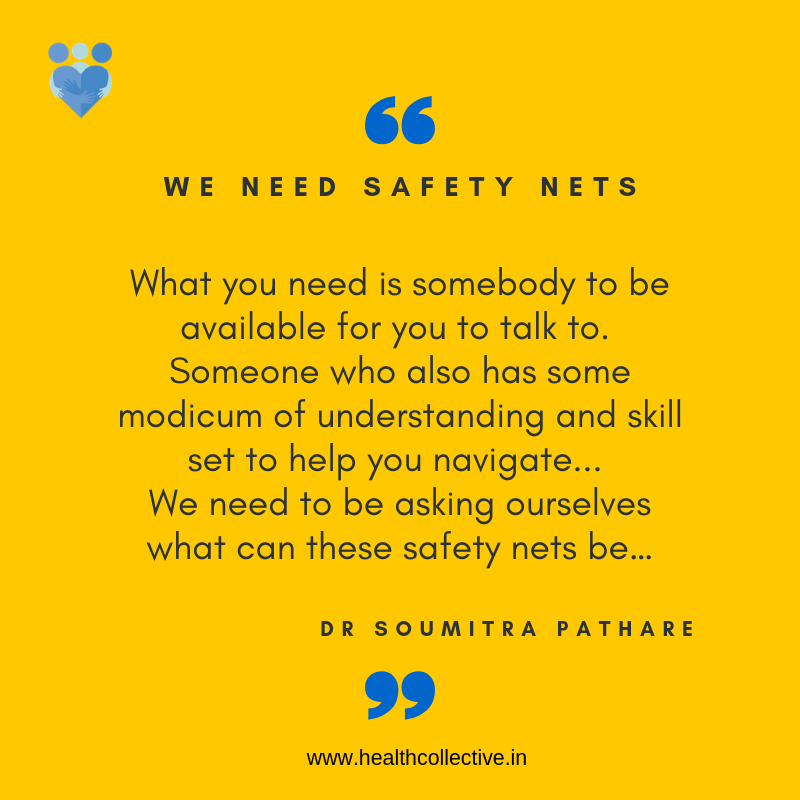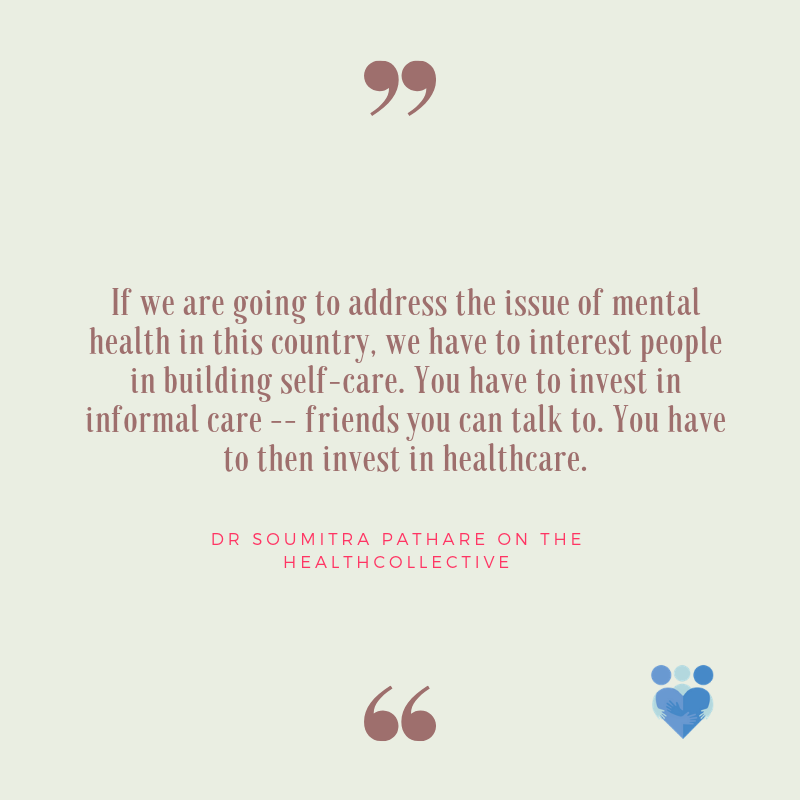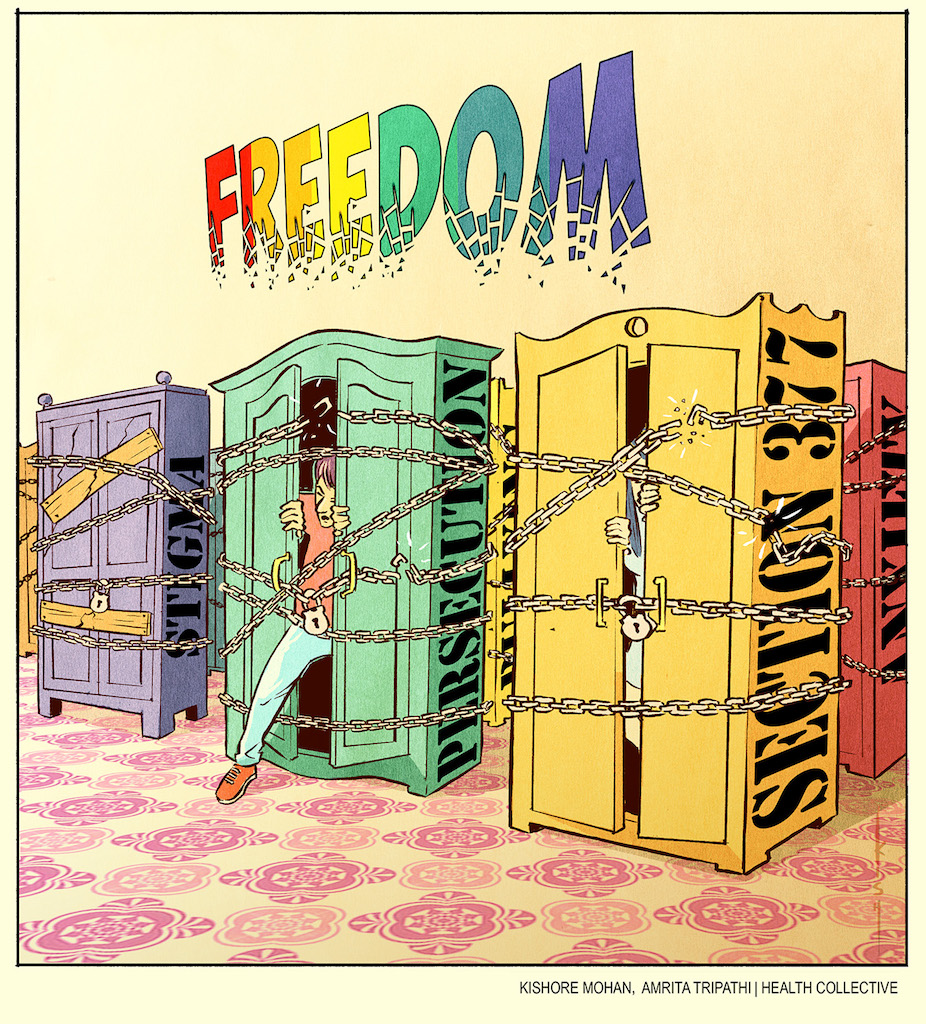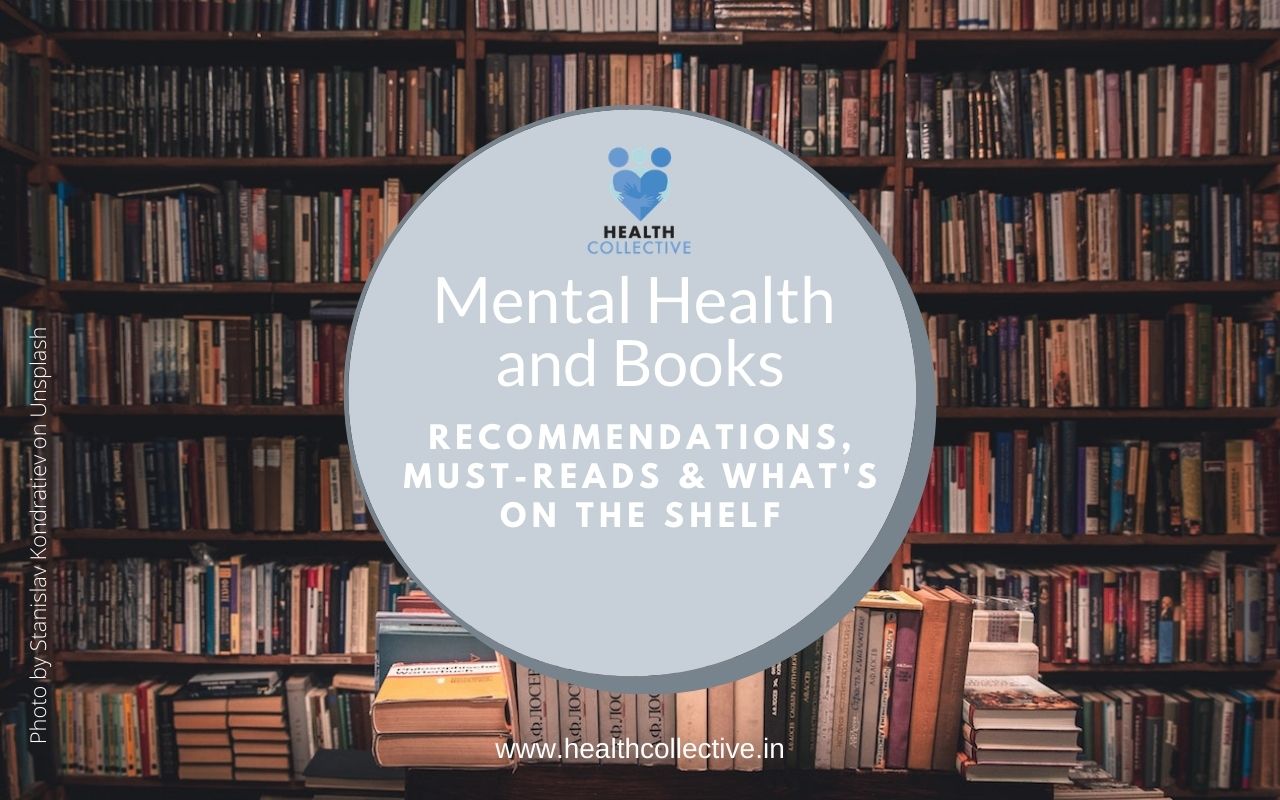We Need to Talk: On Mental Health, Self-Care and Preventing Suicide
What are some of the major issues stressing out young Indians? What should we be talking about when we talk about Mental Health? Why are we not discussing the critical issue of Youth Suicides and the need for preventive mental healthcare? Read on for edited excerpts of Sukanya Sharma’s interview with Dr Soumitra Pathare, consultant psychiatrist and Director, Centre for Mental Health Law and Policy at the Indian Law Society, Pune.
What is bothering (or should bother) Indians?
One of the biggest issues for young people, I think, is privacy. Paradoxically, we have gotten everything but privacy today. (With) nothing you do today can you be certain that you do it in private — you might not even know that you’re being watched. The loss of privacy is a major issue for all of us, and we should be worried about it. Climate change is another stressor for young generation. If you’re a young Indian person, employment and jobs is a big stressor. Many of these problems are like roti, kapda, makaan. These basic issues are stressors. If the stress is ongoing, then it affects your health. Stress can be internal or external, and these play on your mind. It affects you mentally and physically.
How is this transition (to a digital always-on world) affecting young people? And the older generation also? There are many points of friction…
Parents currently feel as much under stress as their children do. They are also trying to navigate their way around a world that they can’t understand on some level. The value system which has changed, so they are as much at a loss at the sea as young people.
But I think that conflict is only one part of that relationship. Clearly there is conflict, but I don’t think that can explain the entire relationship. I don’t think we should just characterise that relationship as that of conflict, I think it’s also a relationship of concern — concern from both sides. The concern of parents is that there’s no notion of job stability, for example, the notion of a “gig economy” versus the idea of employment, so the idea that your kids will stay with you when you are growing old is no longer a given.
So we need to see this as two different generations trying to navigate their way through this new environment, navigate their relationship through this environment. It’s easy to caricature this relationship — uncaring children versus elderly parents, but it’s not that, there’s a lot of adjustments that both the generations are making.
ALSO READ: RELATIONSHIP STRESS AND MORE: WHAT’S TROUBLING OUR KIDS
These issues also then move on to affect romantic relationships. Earlier it was an easy choice, if your husband was getting transferred, the wife would move. But if today, you are in a relationship with someone, not married, and if a partner decides they want to shift to another place for better job prospects, would their partner be happy to move with them? Probably not. So then the notion of which relationship — job, or personal — do you navigate around is stressful. Fifty years ago you did not have these choices, these complexities.
ALSO READ: RELATIONSHIPS 101
What is the collateral damage in this phase of evolution?
When it’s too rapid a change, in any environment, while you are trying to adapt, you may even maladapt. Maladaptation is probably what you see before the adaptation. Adaptation is also a hit and miss effect — we tend to see adaptation as a straight clean line, but it’s more of a stock market graph. Also, unfortunately we haven’t put those safety nets (in place). We need to realise that if these things are happening then people are going to fall, or fail. A lot of these safety nets do not need to be professional safety nets. It doesn’t mean that we all should have a personal counsellor. What you need is somebody to be available for you to talk to. Someone who also has some modicum of understanding and skill set to help you navigate. We need to be asking ourselves what can these safety nets be…

Why is it difficult to have that conversation?
I don’t have a straight answer to it, but I think it’s because our public discourse is so binary. The public discourse hasn’t gotten around to talking about how does it affect our community and society. What is this change doing to our society, and how are we going to enable our other member of the society, take advantage of that change, to thrive…as opposed to fail. We haven’t really thought of that. I don’t have an answer, but I’m commenting on what I see. I don’t see us having that conversation.
The public discourse also needs to change around mental health, it needs to stop portraying mental illness as mad.
People need to know that when we talk about mental health, we are discussing these (our conversation…) things. We need to talk about mental health in its broadest sense of the term, and see mental illness as only a subset. We need to talk about health interventions, which give us an understanding of mental health also. We need to teach people coping skills, good life skills, these are very important things. How well are we preparing our young people to cope with life skills?
ALSO READ: PSYCH-ED: MENTAL HEALTH AND SCHOOLS PROGRAM
Should we introduce mental health as a subject in our education institutes?
We should. That’s what I mean by educating our youth with these life skills. I know that some have begun to do that, but I think it’s still seen as a luxury, as opposed to a necessity. It’s not something that only expensive schools should give, this education needs to be built in every school.
This may sound very simple, but another important thing is teaching parents, parenting skills. I mean who taught us parenting skills? Nobody. It is a presumption that you will get it, but how will you get it?
ALSO READ: PARENTING IN URBAN INDIA: A QUICK TAKE
Your mother got it because she stayed with her mother when they were bringing up a child, so you learnt a thing or two. You learnt stuff because your mother modeled it for you. Not that learning was perfect. But today, who do you learn it from? If you are a 25 year old, 28 year old professional woman who’s had her first child, who does she learn parenting from? Does our health service emphasise parenting?
Paradoxically, if you go to the rural areas, because of aangan waadis, there are some skills that are transferred to young mothers. You could question the quality of that skill, but the fact is that is that there is still some potential for some skill transfer. To live in an urban area, those skill transfers are not happening today. How do parents know what is the right thing to do if you don’t teach them parenting?
So when I mean safety nets, I also mean these things. A lot of safety nets are just prevention. We need to look at things that we always took for granted, assuming they would just happen. For example – There’s research that suggests young mothers that have some support reduces the chance of postpartum depression. Just befriending and having someone to chat with makes the difference.
(What are some) problems that the young people of India are facing, in terms of mental health?
- Relationships
- Coping abilities, learning skills
- Suicides
If you’re a young woman, between the age of 18-30 your number one reason of death is suicide. It’s not child birth. Young women are dying because they die of suicide. This is something we are just not ready to address. For young men, the number one cause of death is accidents. You can say that accidents also have a behavioural component to it. For example, if you ride rashly, that has a behavioural component to it, it has a mental health component…
Editor’s Note: If you or anyone you know is feeling distressed or suicidal, please reach out immediately for professional help. Here is a list of accessible suicide prevention helplines in India. Know that you are not alone.
Everyone is focusing on farmer suicides, but that’s actually a smaller story, in terms of absolute numbers. Young men and women of this country dying of suicide or attempting suicide is something that is just not talked about. That in some ways links to coping skills, and relationship, the environment around you. Suicide is an outcome of the complex series of things that happen. As a society we just don’t talk about it, we don’t address it.
ALSO READ: SUICIDE IS NOT THE ANSWER: A SURVIVOR’S STORY
How do you shrug off such a big statistic? How do you not address it?
Inherent fatalism that we have. Secondly, I think somehow our policy makers and the general public do not believe that suicide can be prevented. We also wrongly believe that people who commit suicide are weak, none of which is true. There’s a lot of misconception – the big one being “What can we do?” We don’t fundamentally believe that it is something that cannot be prevented.
Here is a list of accessible suicide prevention helplines in India.
The number of people who died of malaria in a year is 45,000 (Reference: WHO report) , The number of people who die of HIV – 65,000 (Reference: NACO), Suicide deaths – 250,000. Just think about the kind of noise there is about preventing malaria and HIV, because they think it is preventable.
Of course, change needs to be holistic, but in terms of effectiveness does the change need to come from the government or the society?
I think we all need to. It requires a certain degree of education. We need to educate our society, our policy makers, politicians, that suicides can be prevented , that lives can be saved. It is not just a matter of – kya kare yeh toh hone wala hi hai…It requires a campaign, almost. The fatalism around suicide needs to go. The false belief that someone who wants to die will kill themselves, never matter what you do. All these misconceptions and myths around suicide need to be tackled with our community and our policy makers.

ALSO READ: WE NEED TO TALK ABOUT SUICIDE PREVENTION
A straight top-down, or a purely bottom-up approach won’t work, there needs to be intervention from all sides.
Should we have more conversations around self-care? Would that give people a chance to also address what’s happening around them?
If we are going to address the issue of mental health in this country, we have to interest people in building self-care. You have to invest in informal care — friends you can talk to. You have to then invest in healthcare. Every conversation will be about, ‘There are only 3000 psychiatrists in India’ … (but) mental health is not just about psychiatry. Just like nutrition is not just about paediatricians, nutrition is about your daily needs. Mental health needs to be looked at in the same manner. Self-care and informal care is very important, because this is what is building your community’s capability of coping and helping itself. Not to deny the importance of health care, but there are these low-cost, low-tech requirements that can bridge the gap.
ALSO READ: SELF-CARE IN THIS JOURNEY CALLED LIFE
Disclaimer: Views Expressed are Personal. Material on The Health Collective cannot substitute for expert advice from a trained professional.
If you would like to share your thoughts or stories, do reach out to us by email or tweet @healthcollectif.





Pingback: Young Mental Health: A Message to End Bullying